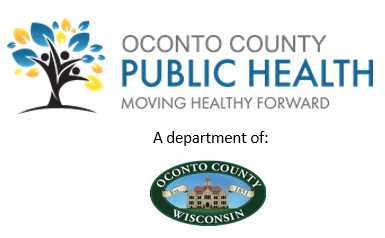DHS Calls on Wisconsinites to Make a Plan to Protect Against Respiratory Illnesses This Fall
The Wisconsin Department of Health Services (DHS) is calling on Wisconsinites to make a plan to get vaccinated against respiratory illnesses this fall. The reminder comes as the updated COVID-19 vaccine has received federal regulatory approval, a new annual flu vaccine is available, and a vaccine and antibody to prevent respiratory syncytial virus (RSV) is on the market. With cooler temperatures, the risk of respiratory illnesses rises, but there are now more tools available to keep people healthy.
“Each fall and winter, viruses like flu, RSV, and now COVID-19, begin to circulate. While they may only cause mild illness for some, they can have a severe impact on our health, causing serious illness and even death. They can also have a severe impact on our lives, causing missed days of school or work,” said DHS Secretary-designee Kirsten Johnson. “Fortunately, we have vaccines and treatments that can now help us protect ourselves and those around us from each of these illnesses. So, as we head into fall, we ask all Wisconsinites to protect yourselves and your families by making a plan to get up to date on the vaccines that can help keep you and those around you healthier this season.”
The triple threat of respiratory viruses that includes flu, RSV, and COVID-19 has the potential to spread quickly in crowded classrooms, across workplaces, indoor gatherings, and later in the winter during the holidays. The time is now to plan and prepare for a healthier fall and winter.
“Vaccines remain the best protection against severe disease, hospitalization, and death from respiratory illnesses,” said Stephanie Schauer, Ph.D., DHS Division of Public Health Immunization Program Manager. “With the start of respiratory virus season, it is essential for Wisconsinites to get all their recommended vaccines to keep everyone healthy and safe.”
As the fall respiratory virus season begins, DHS recommends the following seasonal vaccines:
Influenza (Flu): Everyone 6 months and older is eligible and recommended to receive a flu vaccine. This is especially important for those at highest risk of experiencing severe symptoms, including older people, people with chronic health conditions, people who are pregnant, and young children. Doses are available now.
RSV: People 60 and older and infants and children younger than 19 months should contact their health care provider to determine if RSV vaccination or preventive treatment is recommended for them. People aged 60 and older may be recommended to receive a single dose of the RSV vaccine. All Infants 8 months or younger born during or entering their first RSV season and children 8-19 months entering their second season of RSV and who are at an increased risk of severe RSV disease are recommended to receive nirsevimab. RSV vaccines for older adults are available now and nirsevimab for infants will be available soon.
COVID-19: Everyone 6 months and older is now eligible and recommended to receive the updated COVID-19 vaccine. Doses of the updated vaccine, manufactured by Moderna and Pfizer, have been approved, authorized, and recommended by national health experts for the following groups.
- Individuals 5 years of age and older regardless of previous vaccination are eligible to receive a single dose of the updated Pfizer or Moderna vaccine at least 2 months after the last dose of any COVID-19 vaccine.
- Individuals 6 months through 4 years of age who have previously been vaccinated against COVID-19 are eligible to receive one or two doses of the updated Pfizer or Moderna COVID-19 vaccine (timing and number of doses to administer depends on the previous COVID-19 vaccine received).
- Unvaccinated individuals 6 months through 4 years of age are eligible to receive three doses of the updated Pfizer COVID-19 vaccine or two doses of the updated Moderna vaccine.
- Additional doses are also authorized for certain immunocompromised individuals.
- People may receive either of the vaccines regardless of which vaccine was received in the past.
Doses of the updated COVID-19 vaccine will start arriving in Wisconsin within the coming days and will continue to be delivered over the next several weeks. Health centers, clinics, and pharmacies are expected to make appointments available as their doses arrive.
If you have symptoms of COVID-19, antiviral treatments like Paxlovid and Lagevrio can help prevent serious illness, hospitalization, and death in people with COVID-19. DHS has a free COVID-19 telehealth service that provides access to antiviral treatment through a secure, free virtual COVID-19 telehealth consultation appointment.
“It is important for every eligible Wisconsinite to get both the seasonal flu vaccine and the updated COVID-19 vaccine,” said Stephanie Schauer, Ph.D., DHS Division of Public Health Immunization Program Manager. “Each targets the latest strains of the viruses that cause flu or COVID-19 and can help boost your body’s defense against the viruses should you become infected.”
People are encouraged to make a plan to find and get their recommended vaccines. Check with your health insurance provider to find a doctor, clinic, or pharmacy where vaccines will be available to you, and bring your insurance information to your vaccination appointment. If you do not have health insurance, or your health insurance does not cover vaccines, there are programs that can help, including the Vaccines for Children program and Vaccines for Adults program.
People can check with their primary care provider, local or tribal health department, or community clinic, or visit vaccines.gov to find where you can get the updated COVID-19 vaccine. Eligible Wisconsinites can get their flu vaccine and the updated COVID-19 vaccine at the same time.
Find up-to-date information about the flu, RSV, and COVID-19 on the DHS website.
